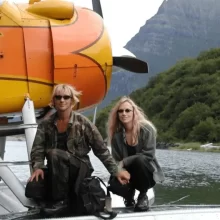Navigating Faith Beyond Earth: Muslim Astronauts and Ramadan in Space
The post Navigating Faith Beyond Earth: Muslim Astronauts and Ramadan in Space appeared first on Healthy Holistic Living.
The intersection of faith and the final frontier presents unique challenges and opportunities for astronauts who hold religious beliefs. Among these, Muslim astronauts face the intriguing question of how to observe Ramadan, a pillar of Islam marked by fasting, prayer, and reflection, while orbiting Earth in the International Space Station (ISS). This becomes particularly complex considering the ISS experiences 16 sunrises and sunsets every day, a far cry from the Earth-bound experience that dictates the rhythm of this holy month. The case of Emirati astronaut Sultan Al Neyadi, who participated in a long-duration mission aboard the ISS during Ramadan, brings this issue into sharp focus.
This article delves into the guidelines established for Muslim astronauts to practice their faith in space, exploring how they navigate their religious obligations amidst the extraordinary conditions of space travel. It examines the broader implications of observing religious practices in space, including the adjustments and accommodations made to ensure that astronauts can maintain their spiritual well-being. Through the lens of this unique situation, we gain insight into the universal nature of faith and the adaptability of religious observance in the most unconventional of environments.
Understanding Ramadan and Its Observance in Space
Ramadan, the ninth month of the Islamic lunar calendar, is a period of profound significance for Muslims worldwide. It is a time for reflection, prayer, and community, observed by fasting from dawn to dusk. This practice, intended to foster spiritual growth and self-discipline, is grounded in the earthly cycle of day and night. However, the environment of space presents a radical departure from this cycle. Aboard the International Space Station (ISS), astronauts experience 16 sunrises and sunsets each day due to its rapid orbit around Earth. This phenomenon poses a unique challenge for Muslim astronauts who wish to observe Ramadan while in space.
The traditional practice of fasting from dawn until dusk is untenable in the constant cycle of day and night on the ISS. To address this, Muslim scholars and space agencies have worked together to establish guidelines that allow astronauts to observe their faith without compromising their health or mission objectives. The ISS follows Universal Coordinated Time (UTC) as a standard, providing a consistent reference for timekeeping in space. This standardization offers a practical solution for Muslim astronauts, allowing them to begin and end their fasts according to a fixed Earth time rather than the erratic sunrise and sunset schedule experienced in orbit.
Moreover, Islamic jurisprudence provides allowances for individuals in extraordinary circumstances, such as travel or illness, exempting them from the fast if it poses a risk to their health or safety. This flexibility is crucial for astronauts, whose physical well-being is paramount for the success of their missions. Emirati astronaut Sultan Al Neyadi, participating in a long-duration mission aboard the ISS, highlighted this point in a press conference, noting that fasting is not compulsory if it endangers the astronaut’s health or the mission’s success. This pragmatic approach ensures that Muslim astronauts can observe Ramadan in space while maintaining their physical health and mission integrity.
Faith in the Final Frontier: Adapting Religious Practices for Space
In the vast expanse of space, practicing faith takes on new dimensions, as illustrated by the experiences of Muslim astronauts like Sultan Al Neyadi. The guidelines for observing Ramadan in orbit are a testament to the flexibility and adaptability of Islamic practices. These guidelines were significantly shaped by the inquiries of Sheikh Muszaphar Shukor, the first Malaysian astronaut, who sought advice from Malaysia’s National Fatwa Council before his space mission. The council’s deliberations resulted in practical solutions for several aspects of Islamic worship in space, including the direction of prayer, the act of kneeling, and the method of ablution. Recognizing the impossibility of facing the Kaaba in Mecca during prayers due to the fluid environment of microgravity, astronauts are advised to pray towards any direction they deem fit at the commencement of their prayers. Similarly, the requirement to kneel, challenging in the absence of gravity, is waived, and a wet towel can suffice for ablution, demonstrating Islam’s inherent capacity for accommodating extraordinary circumstances.
The precedent set for religious observance in space extends beyond Islam, reflecting a broader interplay between faith and the final frontier. Astronauts of different religions have found ways to practice their faiths while aboard the ISS. For example, the first Israeli astronaut, Ilan Ramon, observed the Sabbath during his mission on the Columbia Space Shuttle, and Christmas and Orthodox Christmas are celebrated by astronauts of Christian faith. Buzz Aldrin, an astronaut aboard the Apollo 11 mission, even performed a communion service on the Moon. These practices underscore the universality of faith among astronauts, who seek to maintain their spiritual life while exploring the cosmos. They also highlight the ISS as a unique intersection of science and spirituality, where individuals from diverse backgrounds and beliefs come together in the pursuit of exploration and discovery, carrying with them the traditions and practices that give meaning to their lives on Earth.
Cultivating Community and Celebrating Traditions in Orbit
The practice of religion in space, particularly during significant periods such as Ramadan, extends beyond personal observance to foster a sense of community and shared human experience among astronauts of various backgrounds. Emirati astronaut Sultan Al Neyadi’s mission on the International Space Station (ISS) during Ramadan and his participation in long-duration experiments showcase not only the individual adaptation to religious practices in space but also the communal aspect of celebrating traditions far from Earth. Al Neyadi, part of Crew 6 alongside astronauts from NASA and a Russian cosmonaut, represents a blend of cultures and beliefs working together in the confines of the ISS. His mission includes celebrating Eid al-Fitr at the end of Ramadan and Eid al-Adha, emphasizing the sharing of Emirati meals with his fellow astronauts. This act of sharing traditional food not only allows Al Neyadi to observe his religious traditions but also opens a window for cross-cultural exchange and mutual understanding among the crew, reinforcing the idea that space exploration is a unifying human endeavor.
The integration of religious and cultural practices into the rhythm of life aboard the ISS mirrors the diversity and inclusivity that characterizes the global effort in space exploration. The ISS becomes a microcosm of Earth, where individuals from different nations and faiths collaborate towards common goals, highlighting the potential for harmony and mutual respect amidst the diversity of human experience. This environment fosters a unique culture of inclusivity, where celebrations like Ramadan, Christmas, and Orthodox Christmas become shared experiences that enrich the astronauts’ time in space, providing moments of reflection, connection, and joy.
Moreover, the celebration of religious traditions in space has broader implications for humanity’s future in extraterrestrial environments. As humans plan for longer missions and possibly settlements on the Moon, Mars, and beyond, the ability to maintain cultural and religious practices will be crucial for psychological well-being and social cohesion. The experiences of astronauts like Al Neyadi offer valuable insights into how future spacefarers can sustain their spiritual and cultural identities in environments vastly different from Earth. These practices and celebrations are not just a matter of personal faith; they are essential components of human culture that contribute to the overall health and morale of space communities, ensuring that as humanity reaches out to the stars, it does not leave behind the traditions and beliefs that define it.
Navigating the Technical and Ethical Frontiers of Space Exploration
The endeavor to accommodate religious practices such as Ramadan observance in space exploration is emblematic of the broader challenges and opportunities that arise at the intersection of science, ethics, and spirituality. As humanity extends its reach into outer space, the need to consider the holistic well-being of astronauts—including their spiritual and cultural needs—becomes increasingly important. This consideration is not just a matter of personal accommodation but speaks to the ethical obligations of space agencies and the global community to ensure that space remains accessible and inclusive to people of all faiths and backgrounds.
The development of guidelines for religious observance by Muslim astronauts, for instance, represents a significant step forward in recognizing the diverse needs of individuals participating in space missions. It reflects a commitment to inclusivity and respect for cultural diversity, principles that are essential as international collaboration in space exploration grows. The collaborative efforts of space agencies, religious scholars, and astronauts themselves in crafting these guidelines highlight the potential for constructive dialogue between science and religion, two realms often seen as separate or even at odds.
Moreover, the technical challenges of enabling religious practices in space—such as determining the direction of prayer in microgravity or fasting according to the cycles of the Earth-bound lunar calendar—stimulate innovation and creative problem-solving. These challenges necessitate a rethinking of traditional practices and the development of new interpretations and methods that can accommodate the unique environment of space. This process of adaptation and innovation is not only beneficial for the astronauts involved but also contributes to the broader discourse on the flexibility and resilience of religious traditions.
Practical Tips for Observing Religious Practices in Space
As humanity continues to explore the cosmos, accommodating religious practices becomes an essential aspect of mission planning and astronaut well-being. Drawing from the experiences of Muslim astronauts and others who have navigated their faith in space, here are practical tips for observing religious practices during space missions:
Adapt Timing to Universal Standards: Given the rapid orbital sunrise and sunset cycles on the ISS, adhering to Universal Coordinated Time (UTC) for daily rituals, fasting, and prayers offers a practical solution. This standardization helps maintain consistency and fairness for astronauts from different parts of the world.
Utilize Technological Aids: For determining prayer times and the direction of Qibla, technological solutions such as apps and onboard systems can be developed and utilized. These tools can help astronauts maintain their religious practices without the need for constant manual adjustments.
Flexible Observance Guidelines: Acknowledge the unique physical demands and conditions of space missions by adopting flexible observance guidelines. This may include making concessions for fasting during Ramadan or adjusting prayer postures to accommodate the microgravity environment.
Community and Cultural Sharing: Foster a sense of community and understanding among crew members by sharing religious and cultural traditions. Celebrating religious holidays, sharing special meals, and explaining the significance of certain practices can enhance crew cohesion and mutual respect.
Spiritual and Psychological Support: Provide astronauts with access to spiritual and psychological support tailored to their beliefs. This can include counseling from religious leaders experienced in addressing the challenges of observing faith in space, or creating digital libraries of religious texts and materials for personal use.
Pre-Mission Training and Dialogue: Integrate discussions about religious observance into pre-mission training. This prepares both the individual astronaut and their crewmates for the religious practices that will be observed during the mission, ensuring a supportive environment for all.
Collaboration with Religious and Ethical Advisors: Engage with religious scholars and ethical advisors in the planning stages of missions to address potential challenges and solutions for practicing faith in space. Their insights can help shape guidelines that are respectful, inclusive, and practical.
These tips not only facilitate the observance of religious practices in space but also contribute to the overall well-being of astronauts, ensuring that their spiritual needs are met alongside their physical and psychological requirements. As space exploration advances, the continued refinement of these practices will play a crucial role in supporting astronauts in maintaining their faith, resilience, and connection to their cultural and religious identities amidst the stars.
Embracing the Cosmos: Faith and Adaptability Spirit in Space Exploration
The journey of observing religious practices in space, exemplified by Muslim astronauts during Ramadan, underscores the profound adaptability of human faith and the inclusivity of space exploration. These endeavors reveal not just the technical ingenuity required to navigate the unique challenges of the cosmos, but also the deep-seated human desire to maintain spiritual and cultural connections, even in the most remote environments. The collaborative efforts between astronauts, space agencies, and religious scholars to accommodate these practices highlight a broader commitment to ensuring that the final frontier is accessible and welcoming to people of all faiths. This commitment enriches the tapestry of space exploration, making it a truly human endeavor that honors not only our scientific ambitions but also the diverse cultural and spiritual heritage that each astronaut brings to space.
As we stand on the cusp of deeper space exploration, the lessons learned from observing Ramadan and other religious practices in orbit serve as a guide for future missions. They remind us that the essence of exploration is not just to discover new worlds outside but to reflect on the values and beliefs that define us as a species. The ability to adapt and observe religious practices in space demonstrates the resilience of human spirit and the capacity for innovation that will be crucial as humanity ventures further into the cosmos. In this grand odyssey, faith and science walk hand in hand, illuminating the path toward a future where the vastness of space becomes a place of shared human achievement and spiritual reflection.
The post Navigating Faith Beyond Earth: Muslim Astronauts and Ramadan in Space appeared first on Healthy Holistic Living.












